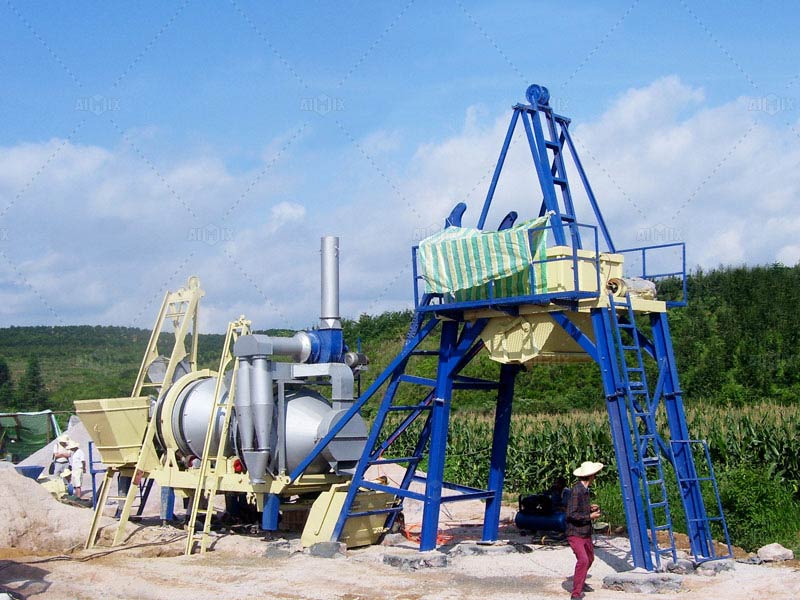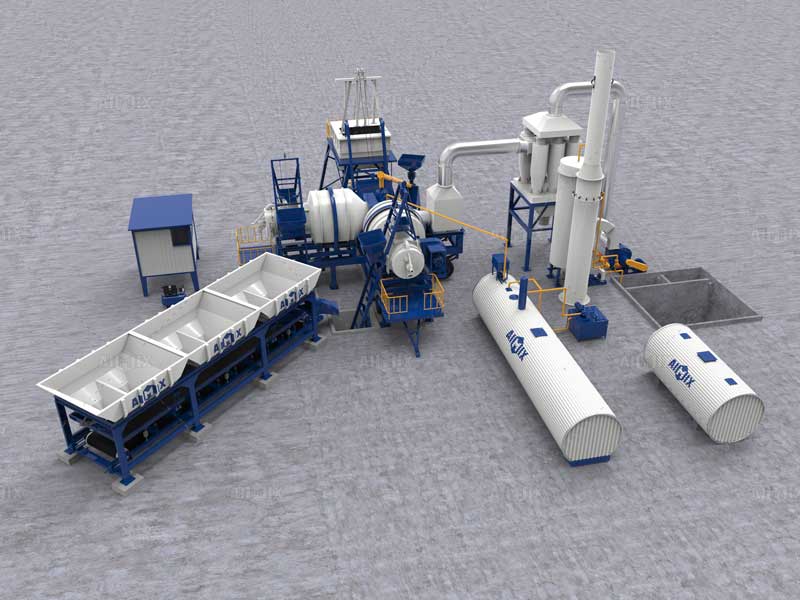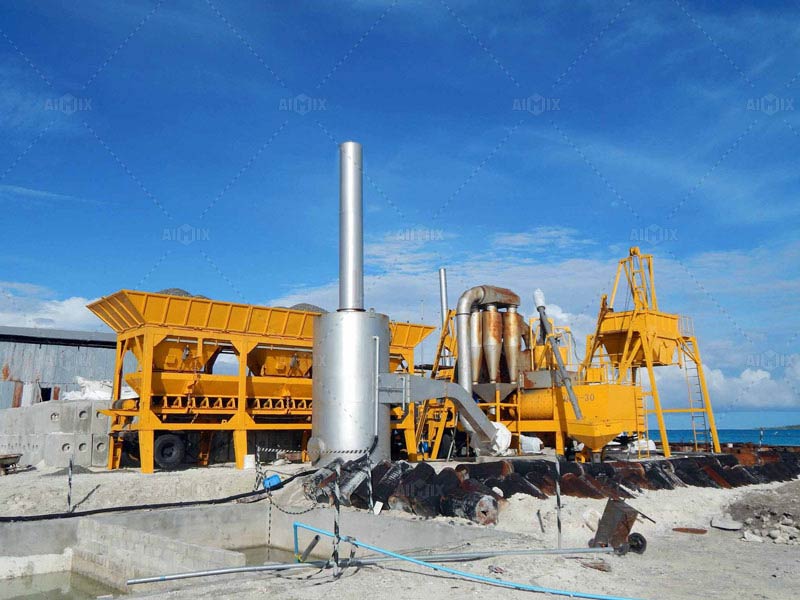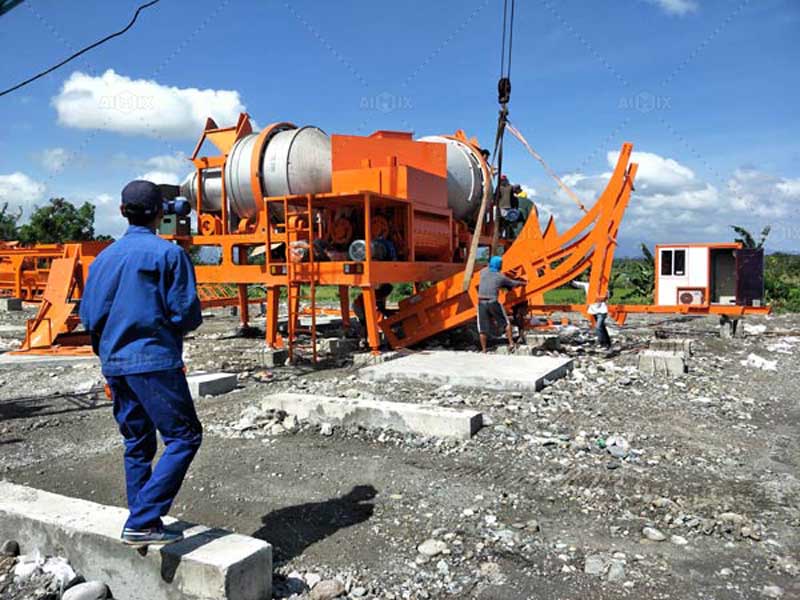When planning a bridge construction project, selecting the right equipment supplier is crucial. A mini asphalt plant is a key component in producing high-quality asphalt, which is essential for the durability and safety of the bridge. However, with many suppliers available, it can be challenging to determine the best fit for your project. In this article, we will discuss the critical factors to consider when choosing a supplier for a asphalt mixing plant mini, ensuring you make a well-informed decision that suits your needs and budget.

1. Quality of Equipment
The quality of the mini asphalt plant you choose directly impacts the quality of the asphalt produced, which is vital for the structural integrity of the bridge. It’s important to ensure the plant is built with durable materials and advanced technology. Look for features like high productivity, precision control systems, and energy-efficient operations. The reliability of the equipment will reduce maintenance costs and downtime, allowing the project to stay on schedule.
Key Points to Check:
- Material quality and manufacturing standards
- Advanced control systems for precise production
- Efficiency in energy use and fuel consumption
2. Production Capacity and Performance
The production capacity of the mini asphalt plant is another vital consideration. For bridge construction, you need a plant that can meet the specific volume of asphalt required within the given time frame. A plant with higher capacity ensures you avoid delays, especially when multiple shifts are involved. However, balance capacity with the size of the project, as too large a plant can be overkill for smaller projects, leading to unnecessary costs.
Performance is closely linked to capacity. Ensure the plant can operate under demanding conditions without compromising quality or efficiency. Reliability and speed in production are critical factors for keeping the project on track and minimizing delays.
Questions to Ask the Supplier:
- What is the plant’s production capacity (ton/hour)?
- Can it handle different asphalt mixtures required for bridge construction?
- Does the plant feature continuous or batch mixing?

3. After-Sales Support and Service
Even the best asphalt plants can face challenges over time. Choosing an asphalt plant supplier who offers reliable after-sales support can save you significant hassle. Ensure that the supplier provides clear warranties, maintenance services, and spare parts availability. Quick responses to any issues that arise during your bridge project will help prevent costly delays.
In addition to maintenance, a good supplier should also offer training for your team to operate the asphalt batching plant efficiently. Having a well-trained team will ensure the equipment runs smoothly, minimizing errors and optimizing production quality.
What to Expect from After-Sales Support:
- Timely access to spare parts
- Regular maintenance services
- Operator training for efficient usage
- Dedicated support team for troubleshooting
4. Compliance with Local Regulations
Each country, and sometimes even regions within a country, has specific regulations for construction and equipment operations. When selecting a mini asphalt plant supplier, ensure that the equipment meets all local environmental and safety standards. In Indonesia, for example, there are strict regulations governing emissions and noise levels, especially in urban areas. Non-compliance could result in fines or project delays.
A reputable supplier will have a deep understanding of local construction codes and regulations. Make sure to verify that the plant complies with these before making your final decision.
Regulatory Considerations Include:
- Environmental impact and emissions standards
- Noise control measures
- Workplace safety standards

5. Cost and Return on Investment
While choosing the cheapest mini asphalt plant might seem tempting, focusing solely on the cost could lead to compromises in quality, performance, or reliability. A well-balanced investment should consider the long-term costs, including maintenance, energy consumption, and operational efficiency. Calculate the total cost of ownership over the plant’s lifespan to ensure that it aligns with your project’s budget and expected returns.
Additionally, compare the total cost against the benefits offered by different suppliers. Sometimes a higher upfront investment can yield better returns in the form of reduced downtime and fewer repair costs.
Cost Considerations to Keep in Mind:
- Initial purchase cost vs. total cost of ownership
- Maintenance and repair costs
- Fuel efficiency and operating costs

Conclusion: Partnering with a Trusted Supplier for Your Bridge Project
Choosing the right mini asphalt plant supplier is crucial for the success of your bridge construction project. By focusing on quality, production capacity, after-sales support, compliance, and cost-effectiveness, you can ensure a smooth and efficient process. Remember, the success of the project depends not only on the plant’s performance but also on the reliability of the supplier.
If you’re looking for a trusted supplier that offers high-quality mini asphalt plants designed for demanding bridge construction projects, AIMIX is here to help. With a strong reputation for durable equipment, excellent after-sales service, and competitive pricing, AIMIX stands out as the partner you need for your next project. Contact us today to learn more about our mini asphalt plant cost and how we can help you achieve your construction goals.
